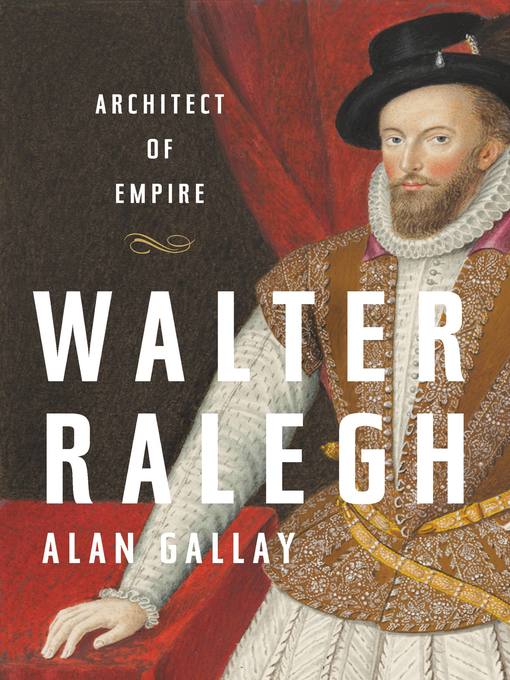
Walter Ralegh
Architect of Empire
کتاب های مرتبط
- اطلاعات
- نقد و بررسی
- دیدگاه کاربران
نقد و بررسی

September 15, 2019
A new biography of the Englishman who was both celebrated and excoriated in his Tudor era as a model colonizer. Beloved by Queen Elizabeth, Walter Ralegh (c. 1552-1618) was handsome, dashing, imaginative, and intelligent. In addition, he could write beautiful poetry. "Imagination was a powerful, creative force in his life," writes Bancroft Prize winner Gallay (Chair, History/Texas Christian Univ.; Colonial and Revolutionary America: Text and Documents, 2017, etc.). Cutting his teeth during the Desmond Rebellions, the Irish attempts to halt Elizabeth's colonization of the Munster province in Ireland in advance of the certain Spanish invasion, Ralegh showed himself to his queen as the ultimate courtier. His service to Elizabeth was absolute, and in 1584, she "granted [him] a patent to found and possess a colony in America." Famous for planting a colony on Roanoke Island, Virginia--and then abandoning it when war with Spain called him back--Ralegh, as the author ably delineates, was determined to promote a colony far different from the brutally disastrous Spanish model. Ralegh did not believe in enslaving the Native peoples; rather, he worked toward a benevolent, mutually beneficial partnership between the two. Naturally, there was much propaganda involved in this colonizing effort; so too in Ireland, where great circumstantial evidence suggests Ralegh had a significant role in the introduction of the potato crop, brought from America, as well as tobacco. There was also plenty of self-promotion during his search for El Dorado in South America, which was part of his effort to vindicate himself under the new king, James I. Though Gallay is unfortunately not interested in Ralegh's personal life, he manages to convey the enormous sense of how the gallant courtier, alchemist, humanist, and author helped create the cult of the goddess queen--who summarily ejected him out of her orbit. An enriching, sympathetic consideration of an extraordinary character in the fraught time of Tudor England.
COPYRIGHT(2019) Kirkus Reviews, ALL RIGHTS RESERVED.

September 27, 2019
There is no denying that Sir Walter Ralegh (1552-1618) opened the door to English colonization of North America, and that one can draw a line straight from Roanoke to the wide-scale massacre and removal of Native peoples in what is now the United States. Galley (history, Texas Christian Univ.; The Indian Slave Trade) refers to Ralegh as a colonizer throughout this latest work, but tries to soften the term in a way that is not quite successful. Even some of the people Ralegh sent to America in his lifetime believed that bloody conquest was the best policy. While Ralegh might have advocated for more peaceful methods, it was still with the ultimate goal of extracting natural resources from the land and people of the Americas. What this book does reveal, however, are the ways in which English colonization of the Americas was similar to contemporary efforts in Ireland, in which Ralegh also played a key role. This does not lighten the impact of American colonization but rather adds a sinister tone to English settlement of Ireland. VERDICT A good choice for those already familiar with the broad strokes of Elizabethan England, and for readers seeking to expand their knowledge of Ralegh's life and works.--Cate Schneiderman, Emerson Coll., Boston
Copyright 2019 Library Journal, LLC Used with permission.

























دیدگاه کاربران